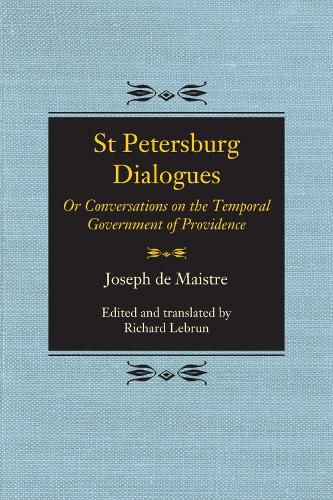Readings Newsletter
Become a Readings Member to make your shopping experience even easier.
Sign in or sign up for free!
You’re not far away from qualifying for FREE standard shipping within Australia
You’ve qualified for FREE standard shipping within Australia
The cart is loading…






This title is printed to order. This book may have been self-published. If so, we cannot guarantee the quality of the content. In the main most books will have gone through the editing process however some may not. We therefore suggest that you be aware of this before ordering this book. If in doubt check either the author or publisher’s details as we are unable to accept any returns unless they are faulty. Please contact us if you have any questions.
Written and set on the banks of the Neva, St Petersburg Dialogues is a startlingly relevant analysis of the human prospect in the twenty-first century. As the literary critic George Steiner has remarked, the age of the Gulag and of Auschwitz, of famine and ubiquitous torture … nuclear threat, the ecological laying waste of our planet, the leap of endemic, possibly pandemic, illness out of the very matrix of libertarian progress is exactly what Joseph de Maistre foretold. In the Dialogues Maistre addressed a number of topics that are discussed briefly or not at all in his other works already available in English. These include an apologetic for traditional Christian beliefs about providence, reflections on the social role of the public executioner and the divinity of war, a critique of John Locke’s sensationalist psychology, meditations on prayer and sacrifice, and a mini-course on illuminism. The literary form is that of the philosophical conversation - one that allowed Maistre to be deliberately provocative and to indulge his taste for paradox, a methodical extravagance that he judged particularly appropriate for the eighteenth-century salon. Translator and editor Richard Lebrun provides a full scholarly edition of this classic work, complete with an introduction, chronology, critical bibliography, and generous explanatory notes. The Dialogues will be of interest to scholars of literary history as well as the history of ideas.
$9.00 standard shipping within Australia
FREE standard shipping within Australia for orders over $100.00
Express & International shipping calculated at checkout
This title is printed to order. This book may have been self-published. If so, we cannot guarantee the quality of the content. In the main most books will have gone through the editing process however some may not. We therefore suggest that you be aware of this before ordering this book. If in doubt check either the author or publisher’s details as we are unable to accept any returns unless they are faulty. Please contact us if you have any questions.
Written and set on the banks of the Neva, St Petersburg Dialogues is a startlingly relevant analysis of the human prospect in the twenty-first century. As the literary critic George Steiner has remarked, the age of the Gulag and of Auschwitz, of famine and ubiquitous torture … nuclear threat, the ecological laying waste of our planet, the leap of endemic, possibly pandemic, illness out of the very matrix of libertarian progress is exactly what Joseph de Maistre foretold. In the Dialogues Maistre addressed a number of topics that are discussed briefly or not at all in his other works already available in English. These include an apologetic for traditional Christian beliefs about providence, reflections on the social role of the public executioner and the divinity of war, a critique of John Locke’s sensationalist psychology, meditations on prayer and sacrifice, and a mini-course on illuminism. The literary form is that of the philosophical conversation - one that allowed Maistre to be deliberately provocative and to indulge his taste for paradox, a methodical extravagance that he judged particularly appropriate for the eighteenth-century salon. Translator and editor Richard Lebrun provides a full scholarly edition of this classic work, complete with an introduction, chronology, critical bibliography, and generous explanatory notes. The Dialogues will be of interest to scholars of literary history as well as the history of ideas.